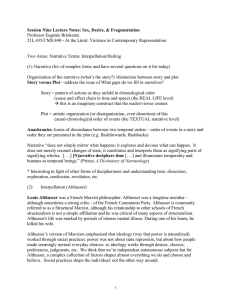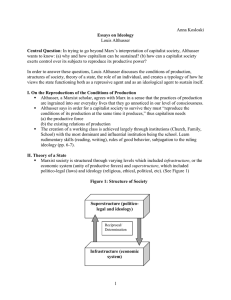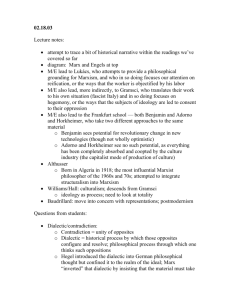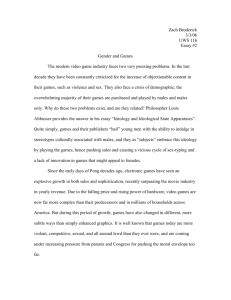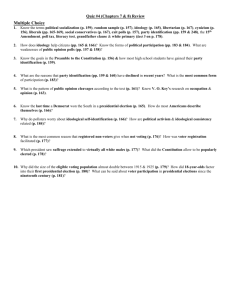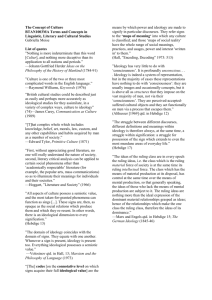Interpellated Subject worksheet
advertisement
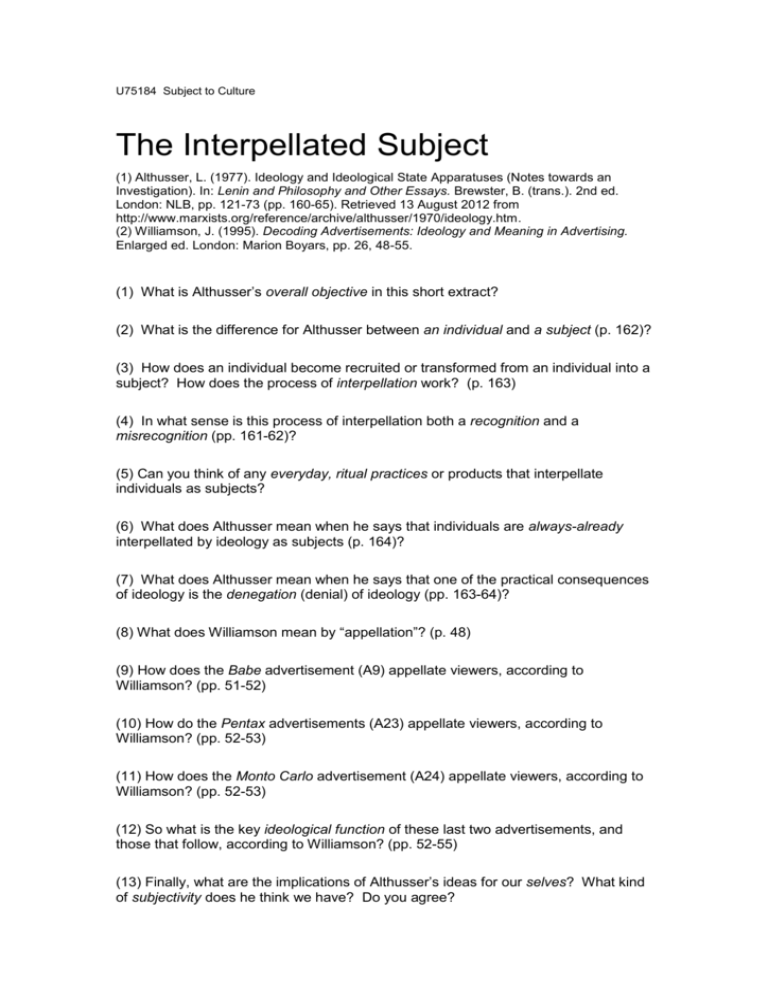
U75184 Subject to Culture The Interpellated Subject (1) Althusser, L. (1977). Ideology and Ideological State Apparatuses (Notes towards an Investigation). In: Lenin and Philosophy and Other Essays. Brewster, B. (trans.). 2nd ed. London: NLB, pp. 121-73 (pp. 160-65). Retrieved 13 August 2012 from http://www.marxists.org/reference/archive/althusser/1970/ideology.htm. (2) Williamson, J. (1995). Decoding Advertisements: Ideology and Meaning in Advertising. Enlarged ed. London: Marion Boyars, pp. 26, 48-55. (1) What is Althusser’s overall objective in this short extract? (2) What is the difference for Althusser between an individual and a subject (p. 162)? (3) How does an individual become recruited or transformed from an individual into a subject? How does the process of interpellation work? (p. 163) (4) In what sense is this process of interpellation both a recognition and a misrecognition (pp. 161-62)? (5) Can you think of any everyday, ritual practices or products that interpellate individuals as subjects? (6) What does Althusser mean when he says that individuals are always-already interpellated by ideology as subjects (p. 164)? (7) What does Althusser mean when he says that one of the practical consequences of ideology is the denegation (denial) of ideology (pp. 163-64)? (8) What does Williamson mean by “appellation”? (p. 48) (9) How does the Babe advertisement (A9) appellate viewers, according to Williamson? (pp. 51-52) (10) How do the Pentax advertisements (A23) appellate viewers, according to Williamson? (pp. 52-53) (11) How does the Monto Carlo advertisement (A24) appellate viewers, according to Williamson? (pp. 52-53) (12) So what is the key ideological function of these last two advertisements, and those that follow, according to Williamson? (pp. 52-55) (13) Finally, what are the implications of Althusser’s ideas for our selves? What kind of subjectivity does he think we have? Do you agree?
